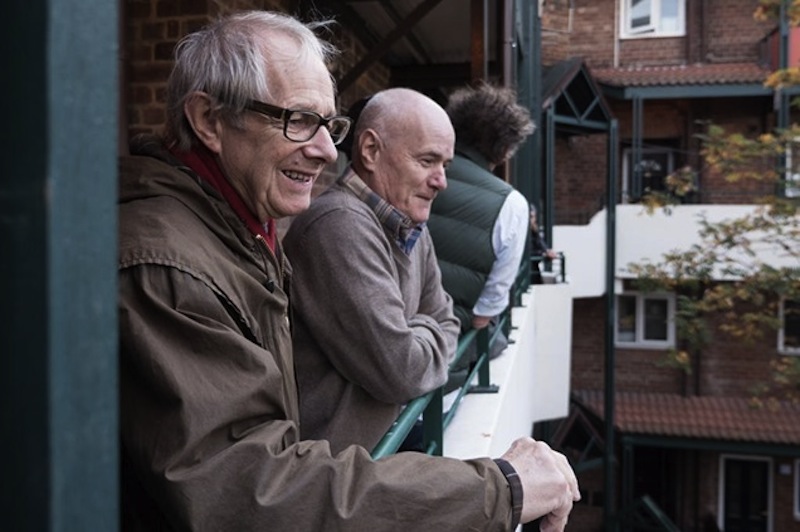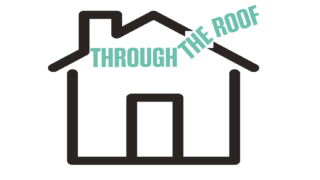Fifty years ago, the BBC broadcast Cathy Come Home, one of the most ground-breaking and influential programmes in television history.
Directed by Ken Loach in a strikingly raw and authentic ‘drama documentary’ style, it followed a young couple in the Midlands as they slid into poverty and homelessness – leading to the heart-breaking final scene, in which Cathy has her children forcibly taken from her by social services.
The drama was watched by 12 million people – a quarter of Britain’s population at the time – and led to a public outcry about the dire state of the country’s housing.
The debate generated by Cathy Come Home gave an undoubted boost to the housing charity Shelter which, by coincidence, was launched just a few days after the broadcast.
Ken Loach has remained one of Britain’s most acclaimed and politically committed filmmakers, whose issues-led, social realist dramas offer portraits of ordinary people suffering at the bottom of the social and economic ladder.
Among them, Riff-Raff deals with the appalling health and safety conditions on a building site, Sweet Sixteen the ease with which disaffected, poverty-stricken youth can drift into crime, and It’s A Free World the abuse of migrant workers.
Though his subjects are invariably depressing, Loach’s work is also compassionate and often funny, his working class characters possessing a camaraderie and good humour that bely their terrible predicaments.
Now 80, he shows no signs of stopping. And with his long-time collaborator, writer Paul Laverty, he’s produced one of his most relevant and powerful films yet.
”You can’t educate much with a film, though you can ask questions, and you can’t organise at all. But you can agitate.And I think to agitate is a great aim, because being complacent about things that are intolerable is just not acceptable.”
The title character of I, Daniel Blake is a 59-year-old Newcastle joiner, who has had a heart attack at work, almost falling from a scaffold, and has been advised by his doctors not to return to work until he has made a full recovery.
However, Dan’s Employment and Support Allowance is stopped when he is deemed to be “fit to work”.
While his appeal is lost in a bureaucratic black hole, his efforts to secure Job Seekers’ Allowance lead him to despair, “a sick man looking for a non-existent job that he can’t take anyway.”
At the same time, he meets Katie, a single mother of two who has been living in a homeless hostel in London and has just been found a flat in Newcastle, far from her family and friends. “Sanctioned” for being a few minutes late for a Jobcentre appointment, the penniless Katie has no choice but to find the nearest food bank.
Before the film’s release this week, Ken Loach spoke about its origins and themes, the research behind it and its ambitions.
What lies at that root of the story?
The universal story of people struggling to survive. But then the characters and the situation have to be grounded in lived experience.
If we look hard enough, we can all see the conscious cruelty at the heart of the state’s provision for those in desperate need, and the use of bureaucracy – the intentional inefficiency of bureaucracy – as a political weapon.
‘This is what happens if you don’t work. You will suffer.’
The anger at that was the motive behind the film.
Where did you start your research?
My home town is Nuneaton in the Midlands. And I’m a little involved with a charity there called Doorway [working with vulnerable young people] which is run by a friend, Carol Gallagher. So Paul [Laverty] and I went there.
Carol introduced us to a whole range of people who were unable to find work for various reasons – not enough jobs being the obvious one.
Some were working for agencies on insecure wages and had nowhere to live. One was a very nice young lad who took us to his room in a shared house helped by Doorway.
The room was Dickensian. There was a mattress on the floor, a fridge, but pretty well nothing else.
Paul asked him would it be rude to see what he’d got in the fridge. He said, “No” and opened the door – and there was nothing, there wasn’t milk, there wasn’t a biscuit, there wasn’t anything.
He said that the week before he’d been without food for four days.
He’d got a friend who was working for an agency. His friend had been told by the agency at five o’clock one morning to get to a warehouse at six o’clock. He had no transport, but he got there somehow.
He was told to wait, and at quarter past six he was told, ‘Well there’s no work for you today.’ So he received no money. This constant humiliation and insecurity is something we refer to in the film.
And you visited food banks?
We went to a number of food banks together and Paul went to more on his own. The story of what we show in the food bank in the film was based on an incident that was described to Paul.
Food banks are awful. You see people in desperation. We were at a food bank in Glasgow and a man came to the door. He looked in and hovered and then he walked away.
One of the women working there went after him, because he was obviously in need, but he couldn’t face the humiliation of coming in and asking for food. I think that goes on all the time.

Out of all the material you gathered and the people you met, how did you settle on your story?
We felt we’d done a lot about young people – Sweet Sixteen was one. And we saw the plight of older people and thought that it often goes unremarked.
There’s a generation of people who were skilled manual workers and are now reaching the end of their working lives. They have health problems and they won’t work again because they’re not nimble enough to duck and dive between agency jobs, a bit of this and a bit of that.
They are used to a more traditional structure for work and so they are just lost. They can’t deal with the technology and they have health problems anyway.
Then they are confronted by assessments for Employment and Support Allowance, where you can be deemed fit for work when you’re not.
The whole bureaucratic, impenetrable structure defeats people. We heard so many stories about that. Paul wrote the character Daniel Blake and the project was under way.
And your argument is that the bureaucratic structure is impenetrable by design…
Yes. The Jobcentres now are not about helping people, they’re about setting obstacles in people’s way.
There’s a job coach, as they’re called, who is not allowed to tell people about the jobs available, whereas before they would help them to find work.
There are expectations of the number of people who will be ‘sanctioned’. If the interviewers don’t sanction enough people, they themselves are put on ‘Personal Improvement Plans’. Orwellian, isn’t it?
This all comes from research drawn from people who have worked at the Department of Work and Pensions, they’ve worked in Jobcentres and have been active in the trade union PCS – the evidence is there in abundance.
The sanctioning regime means people won’t be able to live on the money they’ve got. And therefore food banks have come into existence. And the government seems quite content that there should be food banks.
They’re even talking about putting job coaches into food banks, so the food banks are becoming absorbed into the state as part of the mechanism of dealing with poverty. What kind of world have we created here?
Why did you set the film in Newcastle?
We knew the North West well, having worked in Liverpool and Manchester, so we thought we should try somewhere else. We didn’t want to be in London because, although the city has got huge problems, they’re different and it’s good to look beyond the capital.
Newcastle is culturally very rich. It’s like Liverpool, Glasgow, big cities on the coast. They are great visually, cinematic, the culture is very expressive and the language is very strong.
There’s a great sense of resistance – generations of struggle have developed a strong political consciousness.
Much of the story deals with suffocating bureaucracy. How did you try make that dramatic on screen?
What I hope carries the story is that the concept is familiar to most of us. It’s the frustration and the black comedy of trying to deal with a bureaucracy that is so palpably stupid, so palpably set to drive you mad.
I think if you can tell that truthfully, in the relationship between the people across a desk or over a phone line, that should reveal the comedy of it, the cruelty of it – and, in the end, the tragedy of it.

Dave Johns, who plays Dan (above with the director), is a stand-up comic as well as an actor. Why did you cast him?
The traditional stand-up comedian is a man or woman rooted in working class experience, and the comedy comes out of that experience. It often comes out of hardship, joking about the comedy of survival.
Also Dave’s from Byker, which is where we filmed some of the scenes. He’s a Geordie, he’s the right age, and he’s a working class man who makes you smile, which is what we wanted.
And Hayley Squires as Katie?
Again, Hayley’s a woman with a working class background and she was just brilliant. She doesn’t soften who she is or what she says. She’s just true, through and through.
We looked for someone with sensitivity but also gutsy courage. And, as with Dan, absolute authenticity.
Do you make films hoping to bring about change?
Well it’s the old phrase isn’t it: ‘Agitate, Educate, Organise.’ You can’t educate much with a film, though you can ask questions, and you can’t organise at all. But you can agitate.
And I think to agitate is a great aim, because being complacent about things that are intolerable is just not acceptable. I think anger can be very constructive if it can be used – anger that leaves the audience with something unresolved in their mind, something to do, something challenging.
It is the 50th anniversary of Cathy Come Home this year. What parallels are there between this new film and that one?
They are both stories of people whose lives are seriously damaged by the economic situation they’re in. It’s been an idea we’ve returned to again and again, but it’s particularly sharp in I, Daniel Blake.
In this film the characters are explored more fully. Both Katie and Dan are seen in extremis. In the end, their natural cheerfulness and resilience are not enough.
Politically the world that this film shows is even more cruel than the world that Cathy was in. The market economy has led us inexorably to this disaster. It could not do otherwise. It generates a working class that is vulnerable and easy to exploit. Those who struggle to survive face poverty.
Looking back, we should not be surprised at what has happened. The only question is – what do we do about it?
I, Daniel Blake is released in UK cinemas on Friday 21 October.







